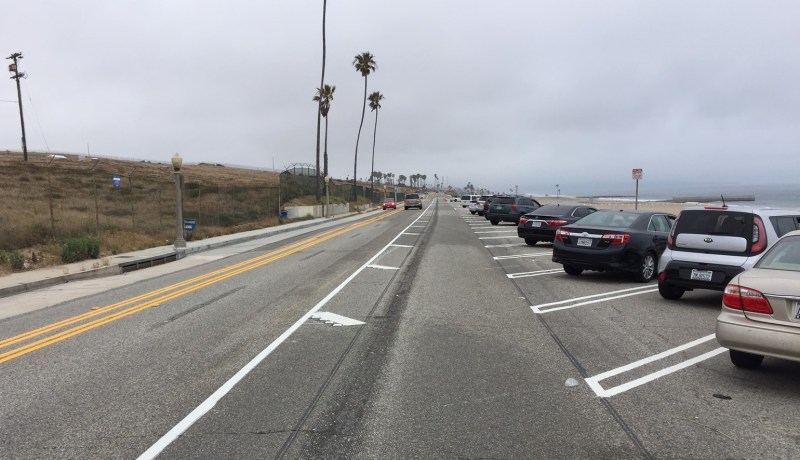In a Los Angeles Times Op-Ed published today, Peter Flax nails the sad dynamics of the controversies brewing over the city of Los Angeles' Playa Del Rey street safety upgrades. Flax aptly calls out his fellow Manhattan Beach residents in the title "Hey, Manhattan Beach, preventing pedestrian deaths is more important than your speedy morning commute." Though the safety improvements are located in the city of Los Angeles, much of backlash has come from Manhattan Beach residents, who, hypocritically, seem to be fine with fewer lanes and calmer traffic in their own fair city, but not in adjacent jurisdictions.
Flax begins by outlining Manhattan Beach's "hysteria" over rush hour traffic, families and businesses harmed by delays, and even speculation by the mayor that Manhattan Beach home values might sag. He goes on to write:
The battle over this project has little to do with bikes and everything to do with safety.
I’ve heard unrestrained laughter greet a reference to fatalities on Vista del Mar as “thinning the herd.” On Twitter, an attorney who works part time in Manhattan Beach shrugged off pedestrian deaths on the thoroughfare, comparing them to lightning strikes. The consensus appears to be that pedestrians and cyclists dying is acceptable collateral damage, as long as the route these commuters use runs as fast as possible.
In the rush to create opposition, Manhattan Beach folks aren’t just being insensitive, they are wrong about the level of their inconvenience. Studies have shown that road diets slow speed but allow about the same number of cars to move through an area over about the same time period, because slower traffic is more compact. In L.A., once wide and chaotic roadways like Abbott Kinney in Venice and Main Street in Santa Monica have been reshaped into vital neighborhood assets, without causing regional transit nightmares.
and:
I moved to Manhattan Beach for its award-winning public school system and its exceptionally livable environment. I let my 10-year-old walk to the public library downtown and encourage my older son, 12, to bike with his buddies down to the beach. The streets are safe by design; the city’s general plan contains explicit language minimizing cut-through traffic for the sake of residents’ quality of life. That L.A. wants to extend that sort of safety to Playa del Rey makes perfect sense to me.
He concludes:
When cars race through neighborhoods where people live, shop and play, speed kills. Taking steps that force us to slow down isn’t an outrage or a conspiracy, it’s making L.A. a better place to live.
Read the whole editorial here. Follow Peter Flax on Twitter. Bike the streets that caused "all hell broken out" for yourself this Sunday at the L.A. County Bicycle Coalition's Sunday Funday bike tour.






